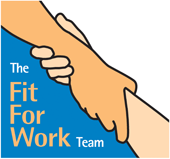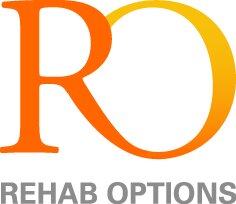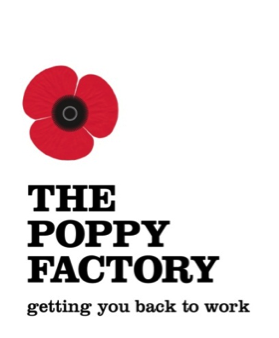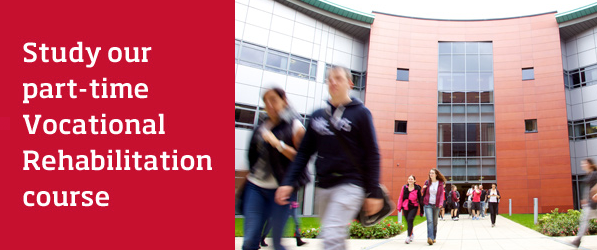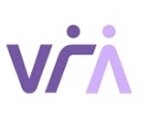VRA Standards Of Practice
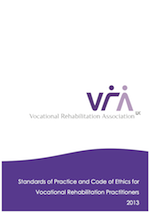
An electronic copy of the VRA Standards Of Practice Document is available to download free.
Request Download Now
VRA Informed Consent Guide
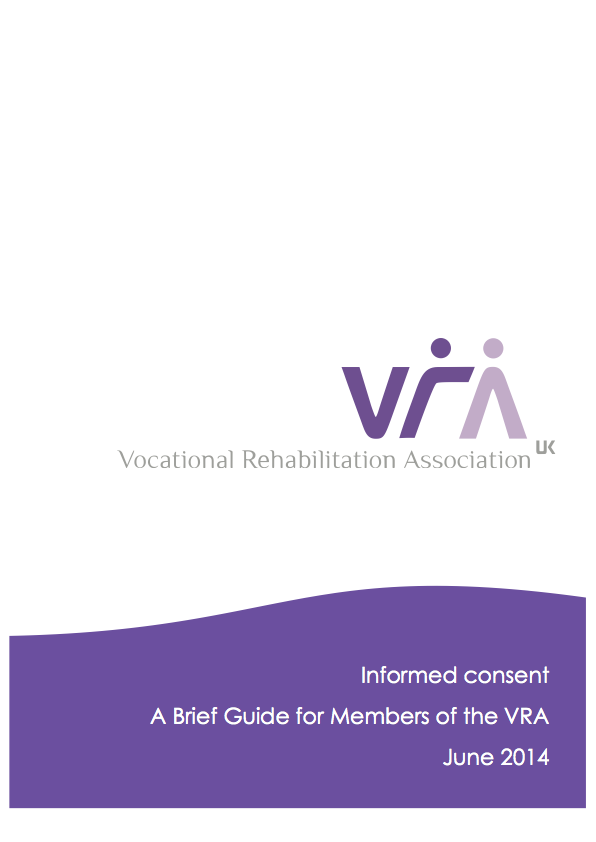
An electronic copy of the VRA Informed Consent Guide is available to download free.
VR Courses
|
The following list is to enable VRA members to find a course of VR training that meets their needs. The inclusion of a course on the list does not carry any endorsement from the VRA. It is a matter for anyone interested in a particular course to discuss the contents with the course tutor Details of upcoming short courses can be found by selecting news on the main menu and then events. |
VRA Organisational Members offering training:
 PG Cert Vocational Rehabilitation
Course description Examine the social and political obstacles that individuals with illness, injury and disabilities may experience relating to work. You learn about the ways in which these can be overcome and gain the knowledge, skills and strategies needed to support these people in finding, remaining in or returning to work. This course is particularly useful if you work in employment-related areas, such as
As a student, you benefit from the flexibility that online distance learning offers, studying at a time that is convenient to you and fits in with your career and lifestyle. It also gives you the opportunity to study with people from different professions both from the UK and abroad, learning together and sharing your experiences. You are encouraged to work together, sharing knowledge and skills through guided e-tivities. The course has been designed so that you can personalise your approach to learning, studying the modules relevant to your particular area of work or interests. It also provides the variety and flexibility to allow you to tailor your learning needs to your own continuing professional development. Studying on this course enables you to be at the forefront of political changes relating to work and welfare reform. This is a good way to enhance your employability in your chosen area of work and allow you to engage in best practice with your service users. After completing the postgraduate certificate, you can progress to PgDip and MSc through our Advancing Professional Practice framework. Careers Your studies are designed to enhance your current practice if you work in vocational rehabilitation. If you are not currently working in this area, the knowledge gained may help you change direction and begin a career in vocational rehabilitation. Course content Course structure The postgraduate certificate (PgCert) is achieved by successfully completing 60 credits. Core module Fundamentals of vocational rehabilitation (30 credits) This module is suitable for anyone interested in understanding the meaning of work and its relationship to health. The module content covers the underpinning policies relating to work. It also addresses assessments and intervention techniques used for return to work and job retention. The module is relevant to those both with experience in vocational rehabilitation but wishing to enhance and evidence base their practice, and for those who have never worked in vocational rehabilitation but who are wishing to develop that as an area of expertise. The module focuses health and work in a range of settings with a range of groups and individuals. You explore the social and political context of work, you have the opportunity to learn about a variety of assessments used with people who have physical, psychological and cognitive difficulties. You have the opportunity to analyse job roles and plan interventions relating to both job retention and return to work. Learning takes place alongside other students using online collaborative resources that allow you to work together as a group. As well as watching presentations (e-lectures) you undertake regular 'e-tivities' many of which are as part of a smaller group. Option modules 30 credits from Ergonomics and human factors at work (30 credits) This module is suitable for anyone interested in improving worker wellbeing. Ergonomics is about getting the best fit between the individual and everything around them. This module takes this principle and applies it in the work environment. You examine the physical aspects as well as the human factors within the workplace. You also consider the wider organisational context and how relationships at work can impact on health and wellbeing. This can benefit people you work with as well as yourself as a worker .By completing the module you understand how a number of different factors can affect the relationship between a person and their work. These include the physical and social environment as well as individual abilities and requirements. You are able to recognise risk factors within the work environment and make suitable recommendations to improve these risks. Occupational approaches to health and wellbeing (15 credits) This module explores the concept using meaningful activity in relation to promoting good health and well-being. During the module you develop an understanding of how periods of transition can impact on the health and well-being of individuals and explore possible preventative approaches to help redress these. The principles can be applied to anyone experiencing change in their lives, for example, retirement, motherhood, bereavement, worklessness, as well as wider areas of health promotion. Work-based learning project (15 or 30 credits) This module is about making links between your learning and the strategic needs of the organisation by focusing on a negotiated activity or project agreed with the employer, learner and university. It has been created to enable you to work on issues which have specific relevance to you and to your organisation. The work-based learning module is designed to enable you to customise the learning outcomes in order to fulfil personal learning objectives and organisational goals. This means the work and assessment in this module link directly to your professional practice, developments within your practice area and your personal professional review. Personalised study module (15 or 30 credits) This module aims to provide you with the opportunity to plan and carry out a personally chosen study into an area of personal or professional development. Each personalised study module is unique given that a key feature of this learning package is that the aims, learning objectives and content are negotiated by students with the module leader and articulated on the personalised study proposal form. Understanding and applying cognitive and perceptual processing (15 credits) This module explores the underpinning neuroanatomy relating to cognition and perception to facilitate an understanding of why an individual might be presenting with a particular difficulty. Models and approaches to the assessment and treatment of cognition and perception are analysed and applied across the lifespan, taking into account the functional impact on work, leisure and self-care. Further information including fees and attendance details can be found on the website. |
 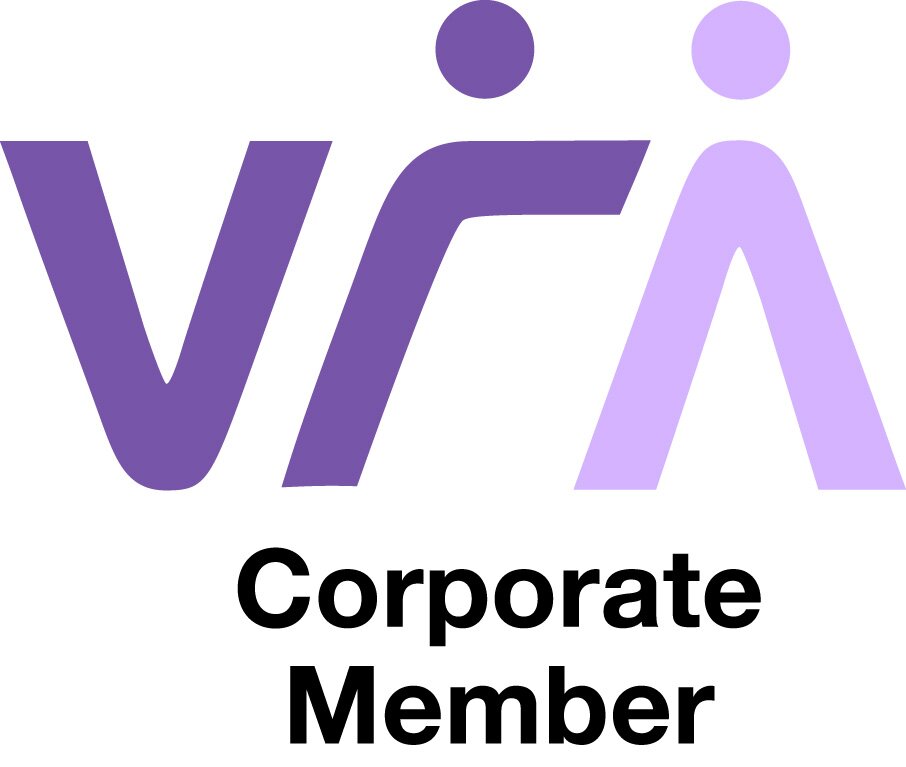
Occupational and Vocational Rehabilitation with the University of Salford Valuable academic qualifications for practitioners who support others to stay in work or return to work If you support others to stay in or return to work then this programme will be relevant to you. There is growing debate around the need for professionalisation in occupational and vocational rehabilitation and the University of Salford is at the forefront of these developments: meeting market demands, building on existing training and experience and providing new educational pathways. We aim to support a wide range of practitioners to develop their knowledge and progress current practice in their chosen field: applying theory and research to practice for real world impact. This course focuses on health, wellbeing and the workplace, with an emphasis on an holistic approach for prevention and rehabilitation, and a comprehensive understanding of a wide range of strategies and perspectives in order to facilitate effective collaborative working. Students will engage in a multi-professional approach to the proactive promotion of healthy working and effective rehabilitation. During your time with us, you’ll consider issues relating to the health and wellbeing of the employed, plus the needs of employers and those not currently in employment. This course will help you develop a critical awareness of the issues that influence occupational and vocational rehabilitation; shaped by clear ethical principles and firmly grounded in the latest research. We have a suite of new modules that can be taken independently for CPD purposes or in combinations to gain valuable qualifications (PgCert, PgDip or MSc):- Professional and Ethical Practice in Occupational and Vocational Rehabilitation (30 credits) covers knowledge and principles underpinned by evidence: including legislation and policy; quality assurance; culture; relationships between health, work and wellbeing; reflexivity and personal-development planning. Designing and Evaluating Workplace Strategies for Health and Wellbeing (30 credits) will equip you with knowledge and skills in relation to evaluation, research and service redesign that will be applicable to your day to day practice. You will examine organisational strategies for health and wellbeing in the workplace. Assessments and Interventions for Occupational and Vocational Rehabilitation (30 credits) will examine a range of physical, psychological, and organisational strategies that will support effective rehabilitation, with a focus applicable to your own practice area. Long-Term Conditions and Vocational Case Management (30 credits) examines long-term conditions in relation to work and identifies quality case management principles and approaches for client-centred rehabilitation, as applied to a range of complex presentations and perspectives. If you complete all 4 modules you can progress on to take the Research Project (dissertation) and gain an MSc. Applicants who work in the NHS can apply for funding through the North West Trust agreement with Health Education North West. If you would like to discuss, please contact (Programme Leader). |
|
|
The European Practitioner Certificate
The European Practitioner Certificate in Disability Employment or EPC, is for people who support individuals with disabilities to gain or stay in work. It is validated in the UK by EDEXCEL at EQF level 5, equivalent to HND. The qualification is provided by two specialist disability-employment companies: VRC and RNL, supported by a specialist education centre TADCO. The EPC is different from other qualifications:
The Units are: You can download a guide to this practical, professional qualification here For further information and to enrol click here. |
Other UK Universities
Degree, Certificate, Diploma & Short Courses
|
Sheffield Hallam University PG cert in Vocational Rehabilitation. Canterbury Christ Church University Post-Graduate Certificate In Vocational Rehabilitation London Metropolitan University MA in Mental Health and Wellbeing |
Advertising Rates
|
Advertising Your Course We offer free advertisements for courses on our website, adverts must be brief and text only, attachments may be included at our discretion. If you would like to have a featured advertisement please contact us to discuss, alternatively why not gain a featured advert FOC as one of our organisational members? We are also able to email advertisements to our members at a cost of £200. Please note that whilst we will make every effort to format the content which is sent we cannot garantee the formating of the email received by members.
|






